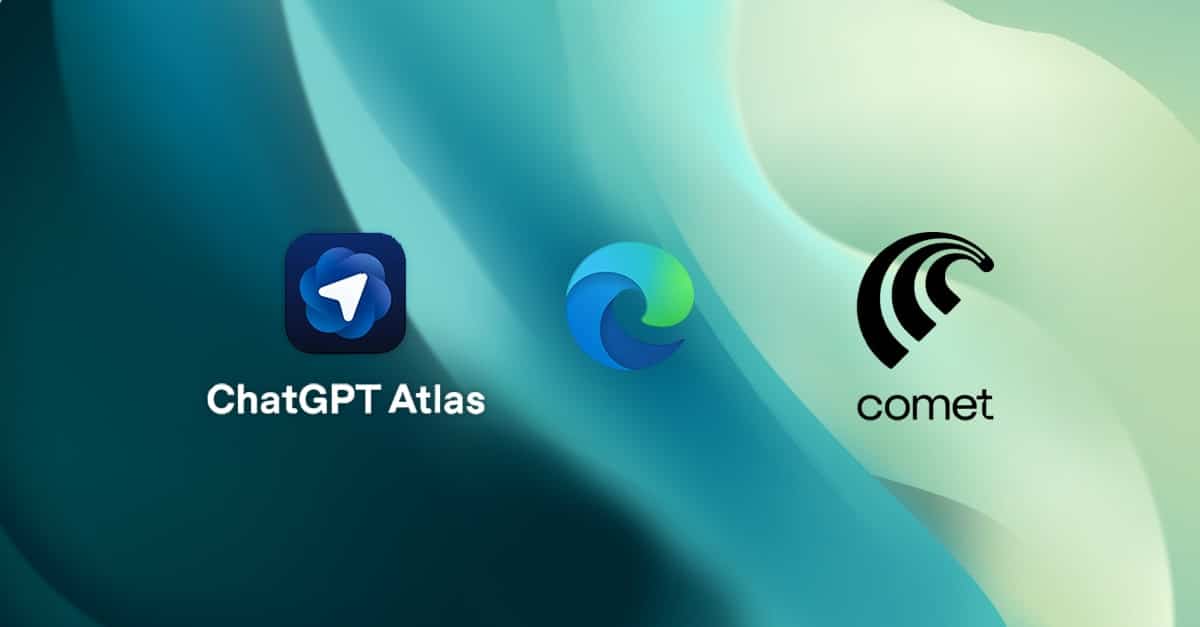
What Marketers Need to Know as AI Rewrites the Browser Experience
It’s been a major couple of days in the browser world. ICYMI, ChatGPT just launched its own web browser, Atlas, with Microsoft responding right back with a major update to Edge. This takes us back to the days of the fight for market share between Ask Jeeves, Netscape and a small little player named Google. Except it’s 2025, and the rules of user search, discovery and engagement are being completely rewritten.
Enter: the browser wars.
The difference now? AI.
For AI adopters, an integrated browser will create efficiency. With AI-integrated browsers like ChatGPT’s Atlas, Microsoft Edge and Perplexity’s Comet, there’s no need to juggle multiple tabs or windows. You can explore the web and leverage AI in the same space. Letting the AI understand what’s on your screen allows it to assist you directly and even take action on your behalf. This is good for users.
But what does it mean for brands?
First, organic search is not dead – it’s evolving. More than four in five adults use online search regularly, whether for finding information or for researching products and brands.
But how they interact with results is shifting fast. Consider the reaction when AI overviews hit the search scene. Users became so satisfied with the responses that browsers (and brands) started to see a zero-click effect.
Now, with Atlas leveraging Google’s search infrastructure, we’re seeing proof that Google’s dominance (91.65% market share) isn’t going anywhere yet. But how users access those results is changing. Expect to see more referral traffic labeled as coming from AI chatbots, and new patterns in how consumers navigate from AI-generated summaries to your site.
This really boils down to the question of consumer adoption. Chrome holds 3 billion users worldwide. It’s a waiting game to see which, if any, of these new AI-powered browsers can compete and become the platform that brands need to plan around in the coming year.
Now let’s talk advertising. According to OpenAI founder Sam Altman, his company has no active plans to pursue advertising, and the other players in this space seem to be taking the same approach, relying on a subscription model instead. But the cost to develop and maintain these AI platforms is extremely high, so we’ll see what the future holds. While AI typically focuses on top-of-funnel questions without the need to investigate further, ads help focus those lower in the funnel who are more primed to act and play a big role in building brand awareness too.
One thing is for sure – AI is going to continue to evolve. It’s already been adopted by many e-commerce platforms to help with product recommendations, customer support and more. Now we’re seeing the reverse too, with e-commerce functionality being introduced directly into AI platforms, such as ChatGPT’s Instant Checkout function. AI-powered web browsers seem like the next step in trying to create a one-stop shop (literally) for users.
So, what should your brand focus on? What you can control.
You should continue to:
- Build your brand. Your reputation is paramount to building trust, and AI models are trained to give more weight to strong brands.
- Optimize your website for the customer journey and the best user experience. As AI continues to evolve and impact search traffic, it’s more important than ever to make sure every visit counts. Make sure your content is specific and digestible and your value proposition is clear. And remember, people aren’t the only ones visiting – site crawlers are digging through your content to see who you are and what’s relevant to serve up in search results. Accessible, well-structured content is easier for both users and crawlers to navigate.
- Dedicate budget to paid advertising. While AI-driven browsers are here and likely to play a significant role in the future of the Internet, paid search strategies and other forms of digital advertising still have value. Ads target potential customers who are lower in the funnel – the ones with higher purchase intent. They also deliver immediate brand visibility.
The bottom line is that, as AI continues to shake up the world of digital marketing, it’s important to be responsive but not reactive. It’s about leveraging these tools to create enhanced experiences for your customers.
